Myra Hindley and Ian Brady - the Moors Murderers. Between July 1963 and October 1965, they kidnapped and murdered five children. Four of which were sexually abused before they were killed. The couple were caught after attempting to recruit Myra's brother-in-law David Smith. He was with them as far as viewing people 'like maggots, small, blind and worthless', but drew the line at murdering Edward Evans. Hindley and Brady were sentenced to life imprisonment.
Whilst in prison, Hindley apparently held some highly successful classes in crochet, as reported in the press to an ever intrigued readership.
Colin Ireland - the Gay Slayer. For three months in early 1993, Ireland picked up victims from S&M bars catering towards homosexual clientele. He knew he could easily persuade such gentlemen to allow him to restrain them in the privacy of his home, which made killing them so much easier. He killed five men before police gathered enough evidence to track him down. He was sentenced to life imprisonment.
Beverley Allit - the Angel of Death. In February 1991, Beverley Allit was taken on as a State Enrolled Nurse at the children's ward in Grantham and Kesteven Hospital, in Lincolnshire. Over the course of the next fifty-nine days, she killed four children, attempted to kill another three and injured six more. The death of the final victim - fifteen month old Claire Peck - was suspicious enough for colleagues to investigate the records. It quickly became apparent that Allit had been alone with all of the children who'd recently died, plus those who'd nearly died, but who had made complete recoveries upon transfer to another hospital. She was sentenced to life imprisonment.
Peter Sutcliffe - the Yorkshire Ripper. Britain's most infamous modern day serial killer was active between 1969 and 1981. During that time, he murdered thirteen women and attempted to kill another seven. He was actually arrested for driving with false number plates, but on a whim an officer asked if he was the Yorkshire Ripper. Sutcliffe duly confessed, shocking all concerned. He was sentenced to life imprisonment.
Jeffrey Dahmer - the Milwaukee Cannibal. From 1978 until 1991, Dahmer abducted, murdered and dismembered seventeen boys and men. He never actually ate any of them, but Silence of the Lambs was popular at the time. The newspapers saddled him with an epithet which would play into that cultural reference, thus selling even more papers. He was arrested after the 18th potential victim - Tracy Edwards - managed to escape, then lead police officers back to Dahmer's apartment. He was sentenced to life imprisonment.
Dennis Nilsen - the Muswell Hill Killer or the Kindly Killer. Between 1978 and 1983, Nilsen killed twelve men and attempted to slaughter another two. He did it for the company - arranging their corpses and having them around the house for a while. He believed that his murder methods (strangulation or drowning) were the most humane, hence the press conferred moniker 'Kindly Killer'. His crimes were uncovered after a service worker answered a call to unblock the drains outside Nilsen's home, and discovered that the blockage was caused by a build up of human fat and small bones. He was sentenced to life imprisonment.
Yoshinori Ueda. During 1992-1993, this Japanese serial killer murdered five people. When the fifth body was found by police officers, their inquiries led them to his front door. Whereupon he confessed to the other four and led the authorities to where he'd concealed his victims' remains. Initially sentenced to death, Ueda later claimed insanity and police coercion in his confession, and walked free.















































































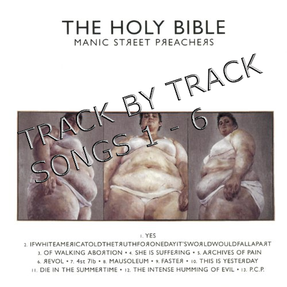 When I began writing this musical journey through the Manic Street Preachers' album The Holy Bible, I did envisage it being one Wizzley article. What I hadn't factored in was the sheer depth and scale of the venture.
When I began writing this musical journey through the Manic Street Preachers' album The Holy Bible, I did envisage it being one Wizzley article. What I hadn't factored in was the sheer depth and scale of the venture.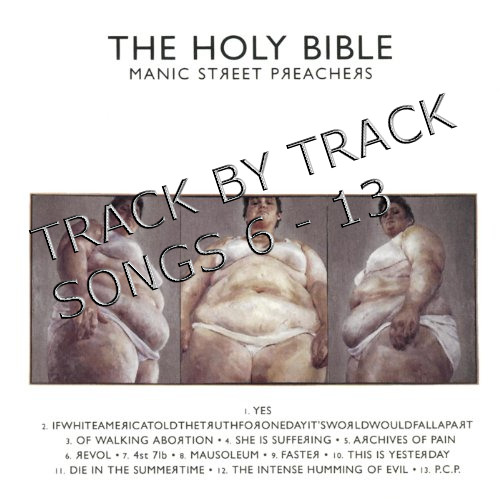

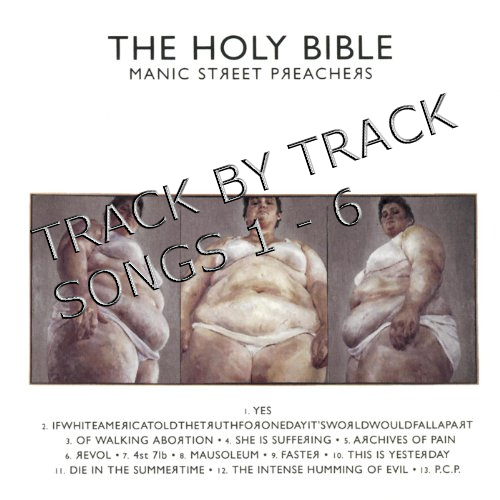
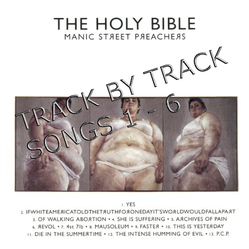

 St Tydecho's Churches in West Waleson 09/03/2014
St Tydecho's Churches in West Waleson 09/03/2014
 Goodies for an Outlander Premiere Partyon 03/06/2015
Goodies for an Outlander Premiere Partyon 03/06/2015
 Holocaust Memorial Day Interview with Rainer Höss, Grandson of Rudolf Architect of Auschwitzon 01/24/2015
Holocaust Memorial Day Interview with Rainer Höss, Grandson of Rudolf Architect of Auschwitzon 01/24/2015
 Romantic Valentine Gifts for an Outlander Fanon 01/16/2015
Romantic Valentine Gifts for an Outlander Fanon 01/16/2015

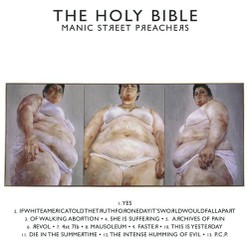
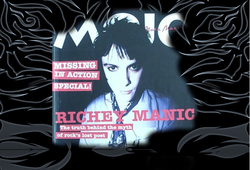
Comments
In the West (and probably the rest of the world too), we're so entrenched in our ways that it's difficult to know where to start. In many ways, you have to pick your causes, or else you go insane. Not only do you have all of the capitalist world aligned against you, but also a society which can barely conceive of what's being said. Hence the confusion over the Disney doll. The issue wasn't my morality, it was the origin of the doll. Or perhaps that's just my viewpoint on it.
This is the epitome of what Joolz wrote about in 'Fuel to the Flame'.
Regardless of whether it is needed, it is interesting, so worth having.
If there is no Richey, are you Richey? I dunno, I'm pretty sure you just got me listening to Richey. And also you make a pretty BAMF Jo. In another sense, fair enough, it works.
LOL Yes that is what I am saying.
You brought up the Disney thing, and made a fair point to me with it the other day. I wonder just how many products we use in our everyday lives that were made in a similar fashion. I did set out once to stop using everything that was not fair trade and made in a place with ethical and fair working conditions, and I was quickly overwhelmed. I had to back out and start with small things. It started after watching this documentary, which I can't find (but I did find the trailer https://www.youtube.com/watch?v=5_Cba...). Led me to write an inflamed and enraged essay against globalization, for a sort of global sociology class I took for fun at the end of my degree...I think I argued that for all the potential good it could bring, mankind as a general whole do not have the ability to use self-control, they're too selfish and exploitative. >.> My professor told me he really enjoyed reading my essay HAH.
Anyways, relative to the documentary, I realized that clothing was probably a biggie but an easy one for me to start with (perhaps also because I don't do a lot of clothes shopping so easier also to control from that angle). So you mentioned when we were in Primark the other day, and that's even a more fair comment against me than Disney simply because I'd already decided to go that rout and now wasn't sticking to it >.> Back when I started, my sort of simple solution at the time had been that I'd only shop at thrift stores (usually because it also supported a cause, while directly did not support any companies that use sweat shops). In any case, I had at least looked up Primarks ethics, but it's just sort of this BS statement 'we're aware it's an issue, only one of our factories has problems in India and we're *trying* to fix it.' So... that's terrible on me.... >.>
So I did need all of that extra Camus? I ummmed and arrrred about it, then figured that I should. Hence all of the extra time, plus Pinter. Mind you, I spat out Pinter. :)
Back to my question the other night: If there is no Richey, I am now Richey?
You think I'm joking about the Romans. You'd be amazed how much they're still influencing all manner of aspects in modern life. From certain points of view, the Roman Empire is not yet over, let alone the ripple effects.
What you're saying is that 'If white America told the truth for just one day, its world would fall apart?'
Oh I suppose I should add that I agree with how you explained Archives of Pain... LOL ....as an outsider whose only just learning about the Manics.
Being a global superpower seriously goes to nation's heads. We're still not nearly over the Romans. LMAO
But seriously, if they even came CLOSE to actually teaching what our governments were up to in history or government classes...Well, then they'd be in trouble, so-- intellectually-- I totally understand why they do it (not saying I agree though). You know, apart from the few good teachers here and there who try to teach students the truth and get written off as cynical or whatever else.
My work here is done.
Remember that I restricted this solely to the countries/incidents referenced in IFWHITEAMERICA. There are plenty of others. Plus there are plenty to fill, say, IFWHITEBRITAINTOLDTHETRUTH... or IFWHITEBELGIUMTOLDTHETRUTH... or IFWHITEANCIENTPERSIANSTOLDTHETRUTH... It's a condition of being a superpower. Being a global superpower seriously goes to nation's heads. We're still not nearly over the Romans.
Wow! There's so much info here. My jaw was hanging to the floor reading some of the things America has done... I mean I'm aware of some (such as attempting to privatize water in the Amazon-- and when people were too poor to buy their water and collected rain water in barrels etc, the company went around and like smashed their barrels or fined them for stealing etc. The people got mad and basically ripped the company president or something apart in a riot... I'm not sure on that final bit there... OR when we came in and took over corn farms in Mexico and then outpriced it to the locals when that is a staple grain for them, tortilla wars) SO it really shouldn't have shocked me reading all that as much as it did...but it did, with an angering and depressing effect... Wow. Especially Haiti. Manifest White Man Destiny. It's too bad this is a family site, else I'd have much more to say.
We kind of discussed Of Walking Abortion and Archives of pain the other day. Both good songs.
Okay, stand up and take a proud bow, you've officially got me really into the Manics. I'm looking forward to the next part of this Wizzley piece.
I have been a little obsessed with this album for a very long time. >.>
There is a wealth of information for "manic street preachers" here - not just books and soundtracks, but resources and articles too.